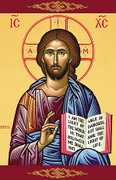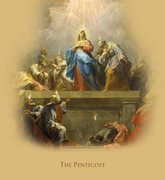Christians don't Suffer just for Sufferings Sake
All of humankind suffers. We cry a river of tears every day, but our spirits soar to the heavens also. Life is difficult. It is really difficult because we suffer. Oh how we suffer; illness, separation, loss, rejection, failure, dejection, disappointment, sorrow, mourning, pain, injury, ailments, disabilities, disease of body and mind, difficulties, broken hearted, broken vows and promises, poverty of mind and body, unloved, ignored, marginalised and death. To seek to avoid suffering is infantile; to ignore suffering or live as if it doesn’t exist is to live in denial or self delusion. Man does not understand suffering, Christians who know God do. Most of man’s suffering is in vain, Christian suffering has a higher purpose. Christians don’t suffer just for sufferings sake. They suffer for love and to be blessed. To be a follower of Christ is to suffer. To follow Christ is to do the will of God. We are required to give up self centeredness for God centeredness; this equates to suffering. We must decrease for God to increase in us. This is the purpose of suffering. We grow emotionally and spiritually through suffering. Suffering teaches the soul, suffering is wisdom; it forces us to slow our thinking and think deeply. The wisdom of the world is made foolish before God’s wisdom. If you have not suffered you have not learnt anything in life; nothing worthwhile. It is life’s greatest teacher. Suffering moulds the soul and being to God’s will. We receive our power to do God’s will through receiving the Holy Spirit. One of the greatest avenues for the Holy Spirit to do his work within us is through suffering offered to God. Suffering strengthens our capacity and character to love; to love is to endure suffering for the one that is loved. God has a reason for every trouble, problem and suffering in our lives. Most people’s instinct is to resist and ask “why me?” or “what did I do to deserve this?”. Denial and resistance naturally follows this type of thinking. They do not understand the purpose of suffering. Gods uses the challenges of life to reveal the true self and character. It is part of the growth process. The soul and spirit grows through the moment by moment process of living. The life force within us propels us through the ever presence of existence. This existence constantly presents us with problems. No one on earth escapes, none has a free painless ticket in this life. We are all equal in that we face suffering and problems in life.

